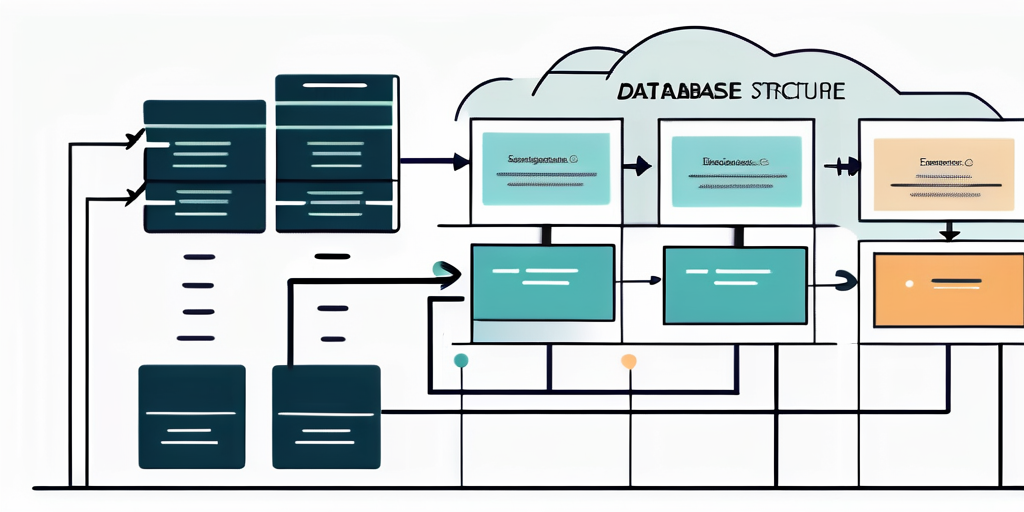
In today’s highly competitive job market, having a solid understanding of database concepts is essential for any aspiring tech professional. Whether you are interviewing for a developer, analyst, or administrator role, you can expect to face a wide range of database interview questions. These questions not only test your technical knowledge but also evaluate your problem-solving skills and ability to think critically in a real-world scenario. In this article, we will explore the importance of database knowledge in tech interviews and discuss the types of questions you may encounter in each category.
Understanding Database Interview Questions
Before diving into the specifics, let’s take a moment to understand why database knowledge plays a crucial role in technical interviews. Databases are at the core of modern-day applications, and an efficient and well-structured database can significantly impact an organization’s success. Employers seek candidates who can demonstrate a strong understanding of fundamental database concepts and possess the ability to design and optimize databases for maximum performance and scalability.

When it comes to technical interviews, having a solid understanding of databases is essential. Not only does it demonstrate your technical skills, but it also showcases your ability to solve complex problems. Interviewers often seek candidates who can think critically and design robust database structures that meet specific business requirements. A deep understanding of databases allows you to identify potential performance bottlenecks and provide efficient solutions.
Importance of Database Knowledge in Tech Interviews
Having a strong foundation in database knowledge is crucial for success in technical interviews. Technical roles often involve working with large amounts of data, and a well-designed database is essential for efficient data management. Employers look for candidates who can demonstrate their ability to design and optimize databases, ensuring maximum performance and scalability.
Furthermore, understanding databases allows you to effectively communicate with other team members, such as software developers and data analysts. By having a common understanding of database concepts, you can collaborate more effectively and ensure that the database meets the needs of the entire organization.
Types of Database Interview Questions
Database interview questions can be categorized into several areas, each testing your knowledge and expertise in different aspects of database management. Let’s take a closer look at these categories and the type of questions you may encounter:
1. Database Design and Modeling
These questions assess your ability to design and create a database schema that meets specific business requirements. You may be asked to normalize a given set of data, create entity-relationship diagrams, or design tables and relationships.
2. SQL and Query Optimization
These questions focus on your knowledge of SQL (Structured Query Language) and your ability to write efficient queries. You may be asked to write complex SQL queries, optimize existing queries, or explain the difference between various join types.
3. Database Performance and Optimization
These questions evaluate your understanding of database performance tuning and optimization techniques. You may be asked about indexing strategies, query optimization techniques, or ways to improve database performance.
4. Data Integrity and Constraints
These questions assess your knowledge of data integrity and the use of constraints to maintain data consistency. You may be asked about primary keys, foreign keys, unique constraints, and how they ensure data integrity.
5. Database Security
These questions focus on your understanding of database security principles and best practices. You may be asked about user authentication, authorization, encryption, and ways to protect sensitive data.
By familiarizing yourself with these different categories of database interview questions, you can better prepare for technical interviews and demonstrate your expertise in database management.
Fundamental Database Concepts
When it comes to fundamental database concepts, interviewers aim to evaluate your knowledge of database structures, normalization, and other core principles. Expect questions that assess your understanding of primary and foreign keys, indexes, data types, and data integrity constraints.

Understanding primary and foreign keys is essential in database management. Primary keys are unique identifiers for each record in a table, while foreign keys establish relationships between tables. Interviewers may ask you to explain the importance of primary and foreign keys in maintaining data integrity and ensuring efficient data retrieval.
Indexes are another crucial aspect of database management. They improve query performance by allowing faster data retrieval. Interviewers may inquire about different types of indexes, such as clustered and non-clustered indexes, and how they impact database performance.
Data types are essential for accurately representing and storing different types of data in a database. Interviewers may ask you to explain common data types, such as integers, strings, dates, and floating-point numbers, and their appropriate usage in various scenarios.
Data integrity constraints are rules that ensure data accuracy and consistency. Interviewers may ask about different types of constraints, such as unique, primary key, foreign key, and check constraints, and how they enforce data integrity.
Questions about Database Structures
Database structures play a vital role in organizing data efficiently. Interviewers may ask questions related to different database models such as hierarchical, network, and relational databases. You may also encounter questions about table relationships, normalization and denormalization techniques, and the benefits and drawbacks of different database architectures.
Hierarchical databases organize data in a tree-like structure, with parent-child relationships. Interviewers may ask you to explain the advantages and disadvantages of hierarchical databases and when they are most suitable for specific applications.
Network databases, on the other hand, allow more complex relationships between data entities. Interviewers may inquire about the advantages and disadvantages of network databases compared to hierarchical and relational databases.
Relational databases, the most widely used database model, organize data into tables with rows and columns. Interviewers may ask you to explain the benefits of relational databases, such as data consistency, flexibility, and ease of data retrieval through SQL queries.
Table relationships, such as one-to-one, one-to-many, and many-to-many, are crucial in database design. Interviewers may ask you to describe these relationships and provide examples of when each type is appropriate.
Normalization is a fundamental concept in database design that minimizes data redundancy and ensures data integrity. Interviewers may ask you to explain the different normalization forms, such as first, second, and third normal form, and how they eliminate data anomalies.
Denormalization, on the other hand, involves intentionally introducing redundancy to improve query performance. Interviewers may ask you to explain when denormalization is appropriate and the trade-offs associated with this technique.
Questions about Database Normalization
Normalization is a crucial concept in database design, ensuring data integrity and minimizing redundancy. Interviewers may ask questions about different normalization forms, such as first, second, and third normal form, and may even challenge you with scenarios where you need to apply normalization techniques to improve a given database schema.
First normal form (1NF) requires eliminating duplicate data by organizing information into separate tables. Interviewers may ask you to explain the process of achieving 1NF and provide examples of denormalized data that violate this form.
Second normal form (2NF) builds upon 1NF by ensuring that each non-key attribute is functionally dependent on the entire primary key. Interviewers may ask you to identify functional dependencies and normalize a given table to 2NF.
Third normal form (3NF) further refines the database design by removing transitive dependencies. Interviewers may ask you to identify and eliminate transitive dependencies in a given table to achieve 3NF.
Normalization techniques are not limited to these three forms. Interviewers may challenge you with scenarios that require higher levels of normalization, such as Boyce-Codd normal form (BCNF) or fourth normal form (4NF), and assess your ability to apply these techniques effectively.
Normalization is a crucial skill for database designers, as it ensures data integrity, reduces redundancy, and improves database performance. Interviewers may ask you to explain the benefits of normalization and how it contributes to a well-designed database schema.
SQL Interview Questions
Structured Query Language (SQL) is a language used to manage and manipulate relational databases. SQL interview questions often test your ability to write complex queries, optimize database performance, and troubleshoot common issues. Be prepared to answer questions regarding SQL syntax, joins, subqueries, aggregate functions, and transaction handling.
When it comes to SQL syntax and queries, a thorough understanding is essential for any database professional. Interviewers may test your knowledge of basic SQL statements such as SELECT, INSERT, UPDATE, and DELETE. However, they may also challenge you with more complex queries involving joins, filtering, ordering, and grouping of data.
For example, you may be asked to write a query that retrieves all customers who have made a purchase in the last 30 days, sorted by their total purchase amount. This would require combining the SELECT, JOIN, and ORDER BY statements to fetch the relevant data and arrange it in the desired order.
Additionally, interviewers may inquire about your familiarity with SQL functions and procedures. These are powerful tools that enhance the functionality and efficiency of database operations. SQL functions, both built-in and user-defined, allow you to perform calculations, manipulate data, and format results.
Queries
For instance, you might be asked to write a query that calculates the average rating of all products in a given category. This would involve using the AVG function to calculate the average rating and the GROUP BY clause to group the products by category.
Stored procedures, on the other hand, are precompiled sets of SQL statements that can be executed with a single command. They offer several advantages, including improved security and performance optimization. Interviewers may ask you to explain these benefits and provide examples of situations where using stored procedures would be advantageous.
Overall, SQL interview questions cover a wide range of topics, from basic syntax to advanced query optimization techniques. It is important to have a solid understanding of SQL concepts and be able to apply them in real-world scenarios. Practice writing queries, familiarize yourself with common functions and procedures, and stay up-to-date with the latest trends in database management to excel in SQL interviews.
Questions about SQL Syntax and Queries
A thorough understanding of SQL syntax is essential for any database professional. Interviewers may test your knowledge of basic SQL statements such as SELECT, INSERT, UPDATE, and DELETE, as well as your ability to write more complex queries involving joins, filtering, ordering, and grouping of data.
When it comes to SQL syntax, it is important to know the proper usage of keywords, operators, and clauses. For example, the WHERE clause is used to filter data based on specific conditions, while the ORDER BY clause is used to sort the result set in ascending or descending order.
Joins are another important aspect of SQL queries. They allow you to combine data from multiple tables based on a common column. Common types of joins include INNER JOIN, LEFT JOIN, RIGHT JOIN, and FULL JOIN. Understanding how these joins work and when to use each type is crucial for writing efficient and accurate queries.
In addition to joins, subqueries are often used to retrieve data from one table based on the result of another query. Subqueries can be used in the SELECT, FROM, WHERE, and HAVING clauses to perform various operations, such as filtering, grouping, and aggregating data.
Lastly, aggregate functions are frequently used in SQL queries to perform calculations on a set of values and return a single value. Common aggregate functions include COUNT, SUM, AVG, MIN, and MAX. These functions can be combined with other clauses and operators to obtain meaningful insights from the data.
Questions about SQL Functions and Procedures
SQL functions and stored procedures are powerful tools that enhance the functionality and efficiency of database operations. Be ready to answer questions related to built-in SQL functions, user-defined functions, and the advantages of using stored procedures in terms of security and performance optimization.
Built-in SQL functions provide a wide range of capabilities, such as mathematical calculations, string manipulation, date and time operations, and data type conversions. Interviewers may ask you to demonstrate your knowledge of these functions and how they can be used to solve common data manipulation tasks.
User-defined functions, on the other hand, allow you to create custom functions tailored to your specific needs. These functions can be written in SQL or other programming languages supported by the database system. Interviewers may ask you to explain the process of creating and using user-defined functions. As well as their advantages over built-in functions.
Stored procedures, as mentioned earlier, offer several benefits in terms of security and performance optimization. By encapsulating a set of SQL statements into a single procedure. You can control access to sensitive data and prevent unauthorized modifications. Additionally, stored procedures can be compiled and stored in the database, resulting in faster execution times compared to ad-hoc queries.
Interviewers may ask you to provide examples of situations where using stored procedures would be advantageous. For instance, you could mention scenarios where frequent data updates are required. Or when complex business logic needs to be implemented. By using stored procedures, you can centralize the logic and ensure consistent and efficient data processing.
NoSQL Interview Questions
While relational databases have long been the dominant choice for data storage, NoSQL databases have gained popularity in recent years, especially for handling large volumes of unstructured or semi-structured data. NoSQL interview questions will focus on your understanding of different NoSQL database types and their specific use cases.

Questions about NoSQL Database Types
NoSQL databases come in various types, including document-oriented, key-value, graph, and columnar databases. Interviewers may ask you to compare and contrast these database types, explain their benefits and limitations. And identify scenarios where each type would be most suitable.
Questions about NoSQL Performance and Scalability
NoSQL databases are known for their scalability and performance capabilities. Interviewers may seek your insights into the scalability challenges faced by traditional SQL databases. And the advantages of using NoSQL databases to handle high volumes of data and concurrent user requests.
Database Design Interview Questions

Database design interview questions assess your ability to create well-structured and scalable database schemas. That can efficiently handle complex data relationships and business requirements. Interviewers may present you with scenarios where you need to design or optimize a database schema.
Questions about Data Modeling
Data modeling is a critical aspect of database design, involving the creation of an abstract representation of a database’s structure. You may be asked questions about different data modeling techniques, such as entity-relationship diagrams and UML diagrams, and how to translate business requirements into a well-designed database schema.
Questions about Database Security
With an ever-increasing focus on data security, interviewers often evaluate candidates’ understanding of database security measures. Be prepared to answer questions regarding access controls, authentication and authorization mechanisms, encryption techniques, and common security vulnerabilities.
In conclusion, a solid understanding of database concepts is paramount for success in technical interviews. By familiarizing yourself with fundamental concepts, SQL, NoSQL databases, and database design principles. You will confidently tackle a wide range of database interview questions. Remember to not only focus on specific technical details but also emphasize your ability to think critically. Analyze complex problems, and provide effective solutions. Good luck in your database interview journey!